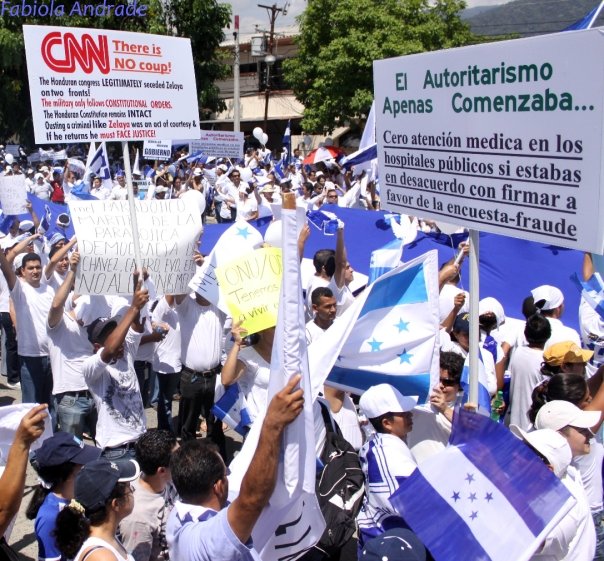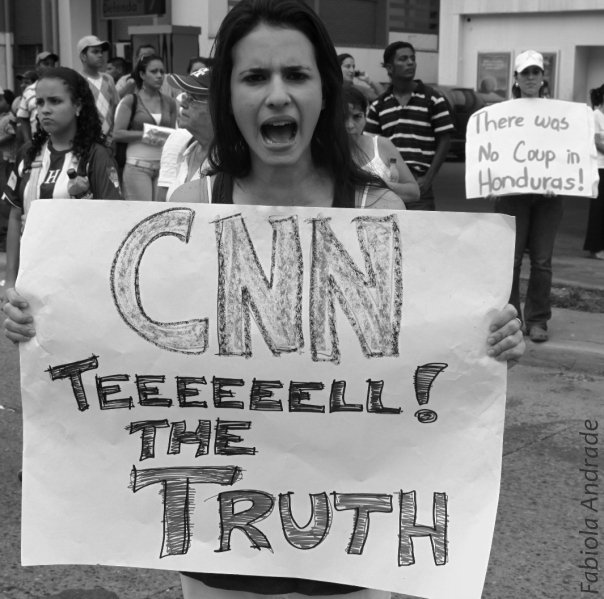 The June 28 ouster of Honduran President Mel Zelaya is rapidly shaping up as a never-ending crisis for the Obama administration. The more it tries to punish Honduras for getting rid of its would-be dictator, the more the freedom-loving Hondurans dig in to keep their democracy.
The June 28 ouster of Honduran President Mel Zelaya is rapidly shaping up as a never-ending crisis for the Obama administration. The more it tries to punish Honduras for getting rid of its would-be dictator, the more the freedom-loving Hondurans dig in to keep their democracy.
That isn’t going to be good for us in the long run. Back in June, Zelaya launched an illegal referendum to extend his rule. As recently as Thursday, he called the referendum “necessary to the legislature and the constitution” in a George Washington University speech.
The Honduran Constitution is quite clear: Any president who expresses such talk gets the boot. Hondurans have stood by it.
But the U.S., along with other nations, misread the Honduran Constitution and called it a coup. They vowed to force Honduras to take back Zelaya. The U.S. pulled visas for Honduran officials and businesses. It expelled Honduran diplomats who didn’t support Zelaya.
Now it’s pulled $30 million in aid and threatens to extend this crisis to forever by not recognizing Honduras’ November elections.
It thinks it’s part of a group:”This is a regional and international effort,” a senior administration official told IBD Thursday. “We’ve talked to the Europeans . . . so if anything, we’ll be redoubling efforts moving forward on this. And no, we’re not isolated at all.”
But as Honduras remains firm, the rest of the world, sees this and has started to restore normal ties. If this continues, the U.S. will be left holding the bag as the world’s bad cop bully.
EvenVenezuela’s Hugo Chavez, by whose influence Zelaya tried to make himself dictator, announced on Sept. 1 that he’d given up hope Zelaya would ever return to office. “Regardless of whether Zelaya returns or not . . . Honduras will keep up the fight,” Chavez said. The Venezuelan strongman can read the obvious: game over.
Meanwhile, the European Union announced it wouldn’t initiate trade sanctions on Honduras as it had threatened earlier. It knew the deal and knew its interests.
 Thursday, the International Monetary Fund announced it would extend a $150 million loan to Honduras, a sharp shift from the lending cutoff announced by the World Bank after the June 28 ouster of Zelaya. Again, game over, back to business.
Thursday, the International Monetary Fund announced it would extend a $150 million loan to Honduras, a sharp shift from the lending cutoff announced by the World Bank after the June 28 ouster of Zelaya. Again, game over, back to business.
The Organization of American States, which egged on Zelaya’s illegal referendum and helped create the crisis, announced it would now focus on avoiding future “coups” — something that, if they were serious, would mean challenging dictators in democracy’s clothing, an unlikely thing. But they, too, are moving on.
This is a big reversal from the days just after the ouster, when it was commonly thought the new government of Roberto Micheletti would cave in to global pressure and reseat Zelaya. At that time, sanctions came fast — as condemnations flowed from a hypocritical U.N., trade with neighbors was cut, ambassadors pulled and visas yanked.
Now it’s just the U.S., browbeaten by the rabid left for being too soft, that’s toughening sanctions and prolonging the crisis.
State Department spokesman Ian Kelly underscored that the U.S. has the toughest sanctions of any nation at a press conference last week. That’s nothing to brag about.
We doubt the U.S. will get anything out of this, least of all gratitude from Zelaya. The U.S., by acting virtually alone, will see its influence shrink. An aid cutoff is a blunt weapon that can damage relationships for a long time. And aid is not always a one-way street. This is why the U.S. hasn’t threatened to pull its 600 U.S. troops from a Honduran military base, as Hugo Chavez has sought, which would amount to a big loss of influence.
The U.S. says the aid cutbacks are meant to prod the Hondurans back to the bargaining table. But so far, the mediation of Costa Rica’s respected president, Oscar Arias, has consisted of an intolerable proposal to bring back Zelaya.
Arias is a decent man, but he’s not being realistic and the U.S. has put too many chips on him. The crisis, as a result, will go on. In the end, it’s quite likely that the U.S. will be the loser, since it’s increasingly clear that this time, we’re on the wrong side of history.
Source: IBD Editorials











Discussion
No comments for “Honduran Headache – Investor’s Business Daily”